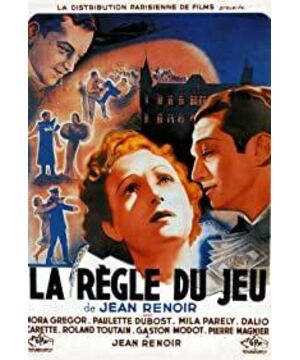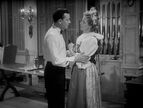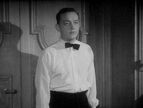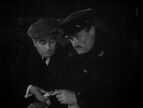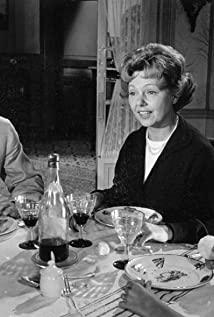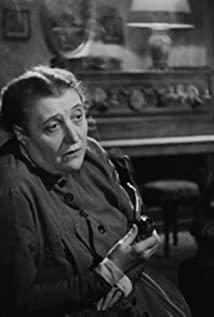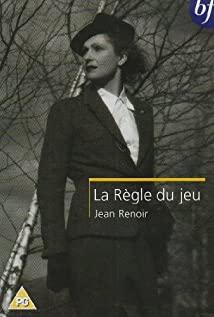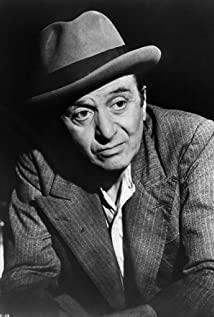Marquise rich lady: Christine, green tea bitch, wife of the marquis Elopement, return to normal after the pilot's death.
Marquis (Christine's husband): Robert, understands and obeys the rules of high society. He loves his wife very much, has a mistress, and once cut off relations with his mistress for his wife.
Pilot: Andre Giulio, express your thoughts.
Madam's Maid: Jesse, feisty. Fornication with the new servant.
Julio's friend (fat): Octave is also a good friend of Robert, Julio, and Christine, and he is also ambiguous with Jesse.
Another long-time mistress of the Marquis: Jeanne Vielves.
This is only for the upper classes, and the lower ones:
Lady's Maid: Jesse, married, having an affair with a new servant.
Jesse's husband: Schumacher, who works as a guard at the Marquis House.
The new servant: Marceau, who used to be a poacher, was appreciated by the Marquis Robert and entered the palace as a servant.
Not long after Marceau entered the house, he became very ambiguous with the maid Jesse, causing Schumacher's anger. Schumacher chased and shot Marceau at the party.
While Schumacher was chasing Marceau, Kristin wanted to run away with Julio and Octave successively. Schumacher eventually killed Julio by mistake.
There were also some other guests.
==============
==============
==============
======== ======
==============
==============
Second, the plot:
The main line of development of the story can be divided into four parts: (1) the introduction and explanation at the beginning; (2) the hunting in the castle; (3) the performance party; (4) the shooting incident.
The dance performance was performed by three ghosts and a skeleton (the god of death). During the intermission, the three ghosts ran off the stage and wandered among the crowd, symbolizing the ghosting of this group of middle-class people, like walking dead. The people chasing him are like ghosts. In the collection of mechanical music, it is another reference, symbolizing their mechanical emptiness, which is more profoundly realized in Année dernière à Marienbad (L') in 1961. And Otaf's inescapable costumes also reproduce the confusion between the fantasy of drama and real life.
The shooting of a hunting scene is breathtaking, and it realistically records the appearance of gun death and convulsions in each prey. The interpretation of the overall idea actually echoes the chase in the party and the shooting death of Andre at the end of the film. When hunting, the servants are on standby in the forest to beat around to drive out the prey, and let the middle-class people in the periphery hunt, and in the party chasing each other, it is similar to the servants chasing the prey, but the chasers are replaced by servants. Vulnerability and their own absurd behavior, without the invasion of external forces, they form a chasing battle. After learning of her husband's affair, Christine seemed to open up to the repression of her inner emotions, a kind of repression of being a marquise, so she chatted with men everywhere. Otav was also incited by Christine and decided to run away with her on a whim. In the end, because her maid revealed that he was old and could not meet her material needs, he finally gave up the opportunity to give her. I really love her Andre. And when Otaf and Christine decided to elope, Robert and Andre were talking about Christine and Otaf together, don't worry about them having any problems, believe that he is an honest man, by This is even more ironic that their lives have no rules at all, but they also have a profound description of human nature. There is no absolute moral justice, and human nature is ultimately dominated by desire. What is the difference between Andre's final death and the prey on the hunting ground? Hunting is a leisure pastime and game for the upper class, and the emotion of chasing is just another absurd game. The rules they did not follow also echo the rules of the hunt. After the hunt, the guests complained to each other that the other did not follow the hunting (game) rule.
With an almost cruel irony, it nakedly exposes and strips the gorgeous and empty, well-mannered but absurd and grotesque social life and sexual relationship of the upper class. The whole film revolves around a three-day aristocratic party held in a mansion. There are many characters on stage, and their (sexual) relationships are complex and intertwined, which is dazzling. The upper-class men and women flirt with each other, while the lower-class men and maids also flirt with each other. The corridors, cloakrooms, kitchens, greenhouses, behind the window lattice curtains, and under the dining table in the mansion are all spaces where they flirt and play.
==============
==============
==============
======== ======
==============
==============
Third, the details of the
50 points -52 points for a group play very exciting. The group play that started at 1:20 led to a climax.
Except for the pilot, all the main characters are green tea bitches and scumbags.
Kristen actually flirts with another married man (1:28),
classic line:
Pilot: her idiot husband Chesney, hunting, castle, and mechanical bird! This snob has been lying to her!
Fatty: He may be a snob, but he is down-to-earth, but you are cloudy and foggy, and you have made a big mistake. Like on the radio, you come back at Bouquet airport, you come back from America, you break all the records, a huge crowd, even the prime minister comes to greet you, and you start speaking, not like a modest national hero, And
instead of trying to please the radio audience, you start talking about Christina, and you want her to see you in public! Pilot: But I did it for her, you understand? She encouraged me, but she didn't. not there...
fat: she is a lady of high society, high society has its own rules
=============
As 1 hour 29 minutes in the film: "For the past three years, my life has been built on lies." "That is the characteristic of our time, everyone lies, the pharmacist's manual, the government, the radio station , movies, news, Why do we simply do not lie
it?
" ============== ==============
====== ========
==============
==============
==============
Fourth, the background is
still. Jean Renoir's journey from "Grande illusion, La, 1936" to "Marseillaise, La, 1938" and ending with "Rules of the Game" (Règle du jeu, La, 1939), completes the his "middle class trilogy"
==============
==============
============= =
==============
==============
==============
V. thrust
the film reflects The final downfall of the European aristocracy. These upper-class people live empty, boring and luxurious lives. They spend their days in emotional games. They can't determine their feelings and can't control the situation. Men and women live a false life under the mask of each other. . And it's all based on one "rule of the game", and that is -- lies.
Lying is the law of "high society". From the media to individuals, everyone carefully crafts umbrella-style lies. In bright situations, everyone is covering up the truth, but it seems that they have a different set. People deceive each other. In the film The "honest" pilot violated this law, and at the end, he was killed by a secretly fired bullet, and the unemployed (played by Renoir himself), poachers, pilots, poachers, and pilots appeared in the upper class of society, triggering a series of tragicomedies. In order to get everything back to normal order, these people are all wiped out (death, leave) at the end of the story.
========================
Before World War II in 1939, French society still maintained a serious class consciousness. Living a life of intoxication. Although the country has entered a republic and its politics has been democratized, the upper class still has a high self-esteem and enjoys most of the social resources.
The absurd, pompous conditions of high society life and the pride of celebrities. No matter it is the nobles of the upper class, or the servants of the lower and middle classes, in and out of the maze-like mansion, pulling and pulling, scenes of absurd behaviors are connected together to build a classic masterpiece.
How did the stories in it violate the "taboo"? It is a mirror reflecting the truth, revealing the ugliness, hypocrisy and ignorance of human nature, and a mirror reflecting the demon. At the beginning of the film, pilot André Jurieux (Roland Toutain) completed the transatlantic pioneering feat and landed in Paris, which was welcomed by a large number of citizens and the media, including his friend Octave (Jean Renoir), but Christine (Nora Gregor), who did not see André's love screen. figure. On the other hand, Christine talks with her maid Lisette (Paulette Dubost) at home about her ambiguous relationship with André and her trusted husband and wife friend, Robert (Marcel Dalio). Later, we learned that Robert had another mistress, Geneviève (Mila Parély), and Octave secretly had a love for Christine. Coming here, it's hard to count how many horns there are in this multi-dimensional relationship, and the intricate relationship between the characters is deepened when the characters gather at Robert's suburban mansion for party vacations and hunting. Lisette's husband, Schumacher (Gaston Modot), the gamekeeper of the mansion, has no passion for husband and wife, and happens to bump into newly hired former poacher Marceau (Julien Carette), and is molested by him, and this place is formed again. a new triangle. But the soap opera-like affair of a man and a woman alone cannot make "Rules of the Game" Jean Renoir's legendary work, let alone one of the greatest films in film history. The playfulness of the plot is packed in a form close to pure comedy. Octave failed to take off his grizzly bear costume after the entertainment performance in the mansion, but everyone was busy with their "private affairs" and refused to help. Octave could only use Grizzly bears dress up and go back and forth in the mansion. This kind of funny and absurdity not only makes people laugh, but also stimulates the audience's inner reflection. The hunting scene in the middle is another classic scene. I saw a group of high-class people standing gracefully in a prescribed corner, hunting and killing small animals driven out by servants. Cruel and meaningless behavior, the same irony, like personally accusing "them" of the culprit that caused the current situation in Europe, no wonder the audience at that time "cut the stool" enough, and set the theater on fire to vent their anger. Jean
===================================
"Rules of the Game" clearly shows the absurd life of the upper class and their The decadent world established, but self-proclaimed to have a set of "rules" to follow, but did not know that they were already outside the rules.
==============
==============
==============
======== ======
==============
==============
six technical
"rules of the game" the most talked about is that The deep focus, which is equally clearly visible in the foreground and background, is a masterful usage many years earlier than that of "Da Guomin".
On the technical level:
the scene movement of Jean Reno, the most incisive and mature play in this film: the scene movement like a dance, the camera movement like a little drunk, Professor Xie Suo, the film authority of Jean Leno, also proposed the film's "double depth of field". "(double profondeur): In a shot, two or more events that may be opposite occur at the same time, such as a scene with a very simple good night farewell, Jean Reno can use one shot to the end of the last two minutes of shots: first of all The owner of the medium shot announced the program of tomorrow's party to everyone, and then the camera pulled out to a full-length view, and the guests began to shake hands and kiss goodnight. In such a simple action, we can see the details of each person's own thinking: for example, the host and the mistress kiss the host's wife politely, as if it was a demonstration; Interrupted, everything is polite, but secretly competing.
View more about The Rules of the Game reviews


